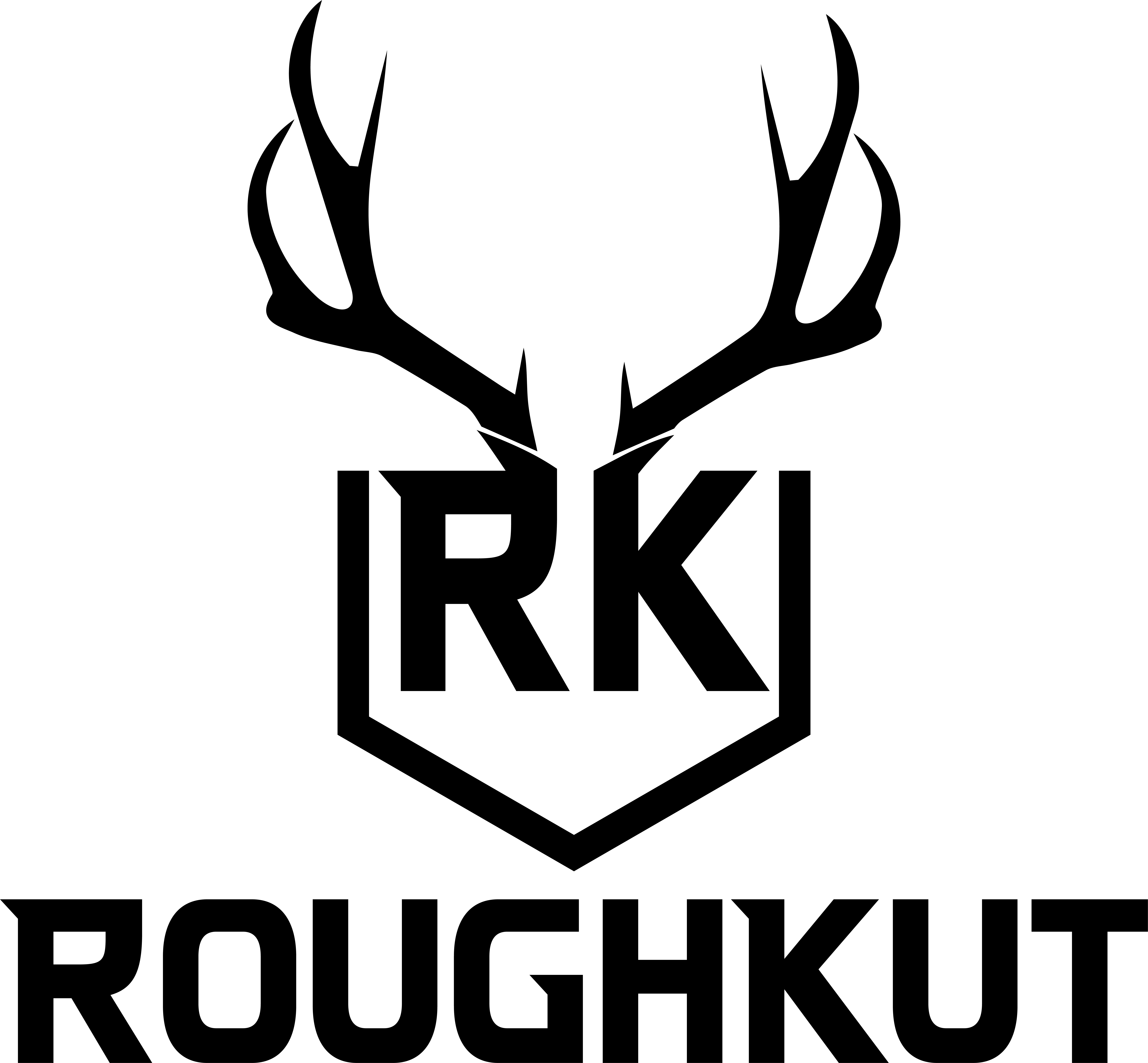North Carolina is a state with diverse wildlife and habitats, offering hunters a variety of opportunities to pursue their passion. Whether you are looking for big game, small game, or furbearers, you will find something to suit your taste and skill level in this state. Here are the top 5 animals to hunt in North Carolina, along with some tips and regulations to help you plan your hunting trip.
1. White-tailed Deer
White-tailed deer are the most popular and abundant game animal in North Carolina, with an estimated population of over one million. They can be found in every county of the state, from the coastal plains to the mountains. Deer hunting season runs from September to January, depending on the weapon type and zone. You can use archery, muzzleloader, or modern firearms to hunt deer, but you must follow the bag limits and antler restrictions for each zone. You also need a valid hunting license and a big game harvest report card.
Some tips for deer hunting in North Carolina are:
- Scout your hunting area before the season to find signs of deer activity, such as trails, rubs, scrapes, and bedding areas.
- Use scent control products and camouflage clothing to avoid spooking deer.
- Hunt during the peak rut periods, which usually occur in late October to early November and late December to early January.
- Use calls, rattles, or decoys to attract bucks during the rut.
- Aim for the vital organs, such as the heart or lungs, for a quick and humane kill.
2. Black Bear
Black bear are another big game species that can be hunted in North Carolina. They are found mainly in the eastern and western parts of the state, where they inhabit forests, swamps, and agricultural lands. Bear hunting season runs from October to January, depending on the zone. You can use archery, muzzleloader, or modern firearms to hunt bear, but you must follow the bag limit of one bear per season. You also need a valid hunting license and a big game harvest report card.
Some tips for bear hunting in North Carolina are:
- Hunt in areas with abundant food sources for bears, such as acorns, berries, corn, or garbage.
- Use bait or dogs to locate bears, but make sure you follow the regulations for each method.
- Hunt during the early morning or late evening hours, when bears are most active.
- Use a high-powered rifle or shotgun with slugs or buckshot for a clean kill.
- Aim for the shoulder or chest area of the bear for a vital shot.
3. Wild Turkey
Wild turkey are a challenging and rewarding game bird that can be hunted in North Carolina. They are found throughout the state, but are more abundant in the piedmont and mountain regions. Turkey hunting season runs from April to May for spring gobbler season and from October to November for fall either-sex season. You can use archery or shotgun to hunt turkey, but you must follow the bag limit of one bearded turkey per day and two per season. You also need a valid hunting license and a turkey harvest report card.
Some tips for turkey hunting in North Carolina are:
- Scout your hunting area before the season to locate roosting sites, feeding areas, and travel routes of turkeys.
- Use calls such as box calls, slate calls, mouth calls, or locator calls to imitate turkey sounds and lure them into range.
- Hunt during the peak gobbling periods, which usually occur at dawn and dusk.
- Use camouflage clothing and concealment techniques to blend in with your surroundings.
- Aim for the head or neck of the turkey for a quick kill.
4. Coyote
Coyote are a furbearer species that can be hunted year-round in North Carolina. They are found in every county of the state, where they adapt to various habitats and prey on small animals. Coyote hunting is open to any legal weapon type, but you must follow the night hunting regulations if you hunt after dark. You also need a valid hunting license.
Some tips for coyote hunting in North Carolina are:
- Hunt in areas with high coyote densities, such as farmlands, pastures, woodlands, or urban edges.
- Use calls such as howls, barks, yips, or distress sounds to attract coyotes into range.
- Hunt during the early morning or late evening hours, when coyotes are more active and less wary.
- Use a centerfire rifle or a shotgun with buckshot or slugs for a clean kill.
- Aim for the chest or head of the coyote for a vital shot.
5. Squirrel
Squirrel are a small game species that can be hunted from October to February in North Carolina. They are found in most parts of the state, where they inhabit hardwood forests, pine plantations, and urban parks. Squirrel hunting is open to any legal weapon type, but you must follow the bag limit of eight squirrels per day. You also need a valid hunting license.
Some tips for squirrel hunting in North Carolina are:
- Hunt in areas with abundant food sources for squirrels, such as nuts, seeds, fruits, or mushrooms.
- Use a .22 caliber rifle or a shotgun with birdshot for a clean kill.
- Hunt during the midday hours, when squirrels are most active.
- Use calls such as barks, whistles, or squeaks to locate squirrels or flush them out of their hiding places.
- Aim for the head or chest of the squirrel for a vital shot.
6. Elk
Elk are a majestic and impressive game animal that can be hunted in North Carolina, thanks to a successful reintroduction program that began in 2001. Elk are found mainly in the Great Smoky Mountains National Park and the surrounding areas, where they roam in herds and graze on grasses, forbs, and shrubs. Elk hunting season runs from October to November, but only for a limited number of permit holders who are selected by a lottery. You can use archery or muzzleloader to hunt elk, but you must follow the bag limit of one elk per season. You also need a valid hunting license and an elk harvest report card.
Some tips for elk hunting in North Carolina are:
- Scout your hunting area before the season to find signs of elk activity, such as tracks, droppings, rubs, wallows, and bugles.
- Use calls such as cow calls, calf calls, or bugles to locate or lure elk into range.
- Hunt during the peak rut periods, which usually occur in late September to early October.
- Use camouflage clothing and scent control products to avoid spooking elk.
- Use a high-powered rifle or a muzzleloader with a large caliber bullet for a clean kill.
- Aim for the heart or lungs of the elk for a vital shot.
7. Feral Swine
Feral swine are a non-native invasive species that can be hunted anytime in North Carolina. They are found in most parts of the state, where they cause damage to crops, wildlife habitats, and water quality. They form large groups and breed rapidly. Feral swine hunting season is open year-round, with no bag limit or weapon restriction. You also need a valid hunting license.
Some tips for feral swine hunting in North Carolina are:
- Hunt in areas with high feral swine densities, such as agricultural lands, wetlands, woodlands, or urban edges.
- Use bait or dogs to locate feral swine, but make sure you follow the regulations for each method.
- Hunt during the night or early morning hours, when feral swine are more active and less alert.
- Use a centerfire rifle or a shotgun with buckshot or slugs for a clean kill.
- Aim for the shoulder or head of the feral swine for a vital shot.
8. Alligator
Alligator are a reptile that can be hunted in North Carolina, but only in the coastal wetlands and rivers of the state, where they feed on fish, turtles, birds, and small mammals. Alligator hunting season runs from September to October, but only for a limited number of permit holders who are selected by a lottery. You can use archery, muzzleloader, or modern firearms to hunt alligator, but you must follow the bag limit of one alligator per season. You also need a valid hunting license and an alligator harvest report card.
Some tips for alligator hunting in North Carolina are:
- Hunt in areas with high alligator densities, such as marshes, swamps, lakes, or rivers.
- Use bait or hooks to locate alligator, but make sure you follow the regulations for each method.
- Hunt during the night or early morning hours, when alligator are more active and visible.
- Use a high-powered rifle or a shotgun with slugs for a clean kill.
- Aim for the brain or spinal cord of the alligator for a quick kill.




